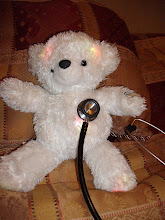What causes diarrhoea?
Most common cause of diarrhoea in children is a virus (most commonly rota virus). Virus spreads through contaminated water or food and also from person to person through contact. Food poisoning can also cause diarrhoea. Bacteria such as salmonella and campylobacter cause food poisoning. Non-infectious diarrhoea is uncommon in children and will be explained in subsequent blogs.
Signs and Symptoms
Children with viral diarrhoea present with frequent, loose, watery stools. In case of rota virus stools may be blackish green in colour and may be foul smelling. Child might experience vomiting and stomach cramps. Fever is also common. If your child does not take plenty of fluids, signs of dehydration (sunken eyes, dry lips and tongue, reduced urine out-put, lethargy) may become evident.
Warning signs
A child who does not drink or has had severe diarrhoea and vomiting is more likely to have severe dehydration. Signs of severe dehydration include drowsiness, cold feet and hands, irritability and passing very little urine. In presence of these signs you should contact your doctor immediately.
Treatment
What can you do at home?
- Give your child plenty of fluids to drink. ORS (oral rehydration solution) is the best rehydration solution which can be used during this illness. ORS contains salts and glucose needed for the body. It comes under various trade names (Dioralyte, Rehydrat, Electral etc) in sachets to be mixed with water to give your child as a drink.
- Each time after passing stools give 50-100 mls of fluids to replace the loss. If he/ she is vomiting give smaller amount (5mls/5min).
- If your child is not taking solids do not worry (as long as he/she is taking fluids).
- If you are breast feeding continue to do so.
- Wash their hands thoroughly with soap and water after toilet and before food.
- Avoid sending them to school/ nursery/ swimming pools.
If you notice any of the above mentioned ‘warning signs’, you need to see the doctor. If your child is severely dehydrated he may need fluids given through his veins (i.e. through the blood circulation via IV cannula). Calories and salts can be given in this way to the child in the hospital. If you notice blood in stools you need to contact the doctor as this could be due to bacteria and may be more dangerous.Medication is not usually needed in children to stop diarrhoea.Main stay of treatment is maintaining hydration.
‘Toddlers diarrhoea’ will be explained in the subsequent blogs.

No comments:
Post a Comment